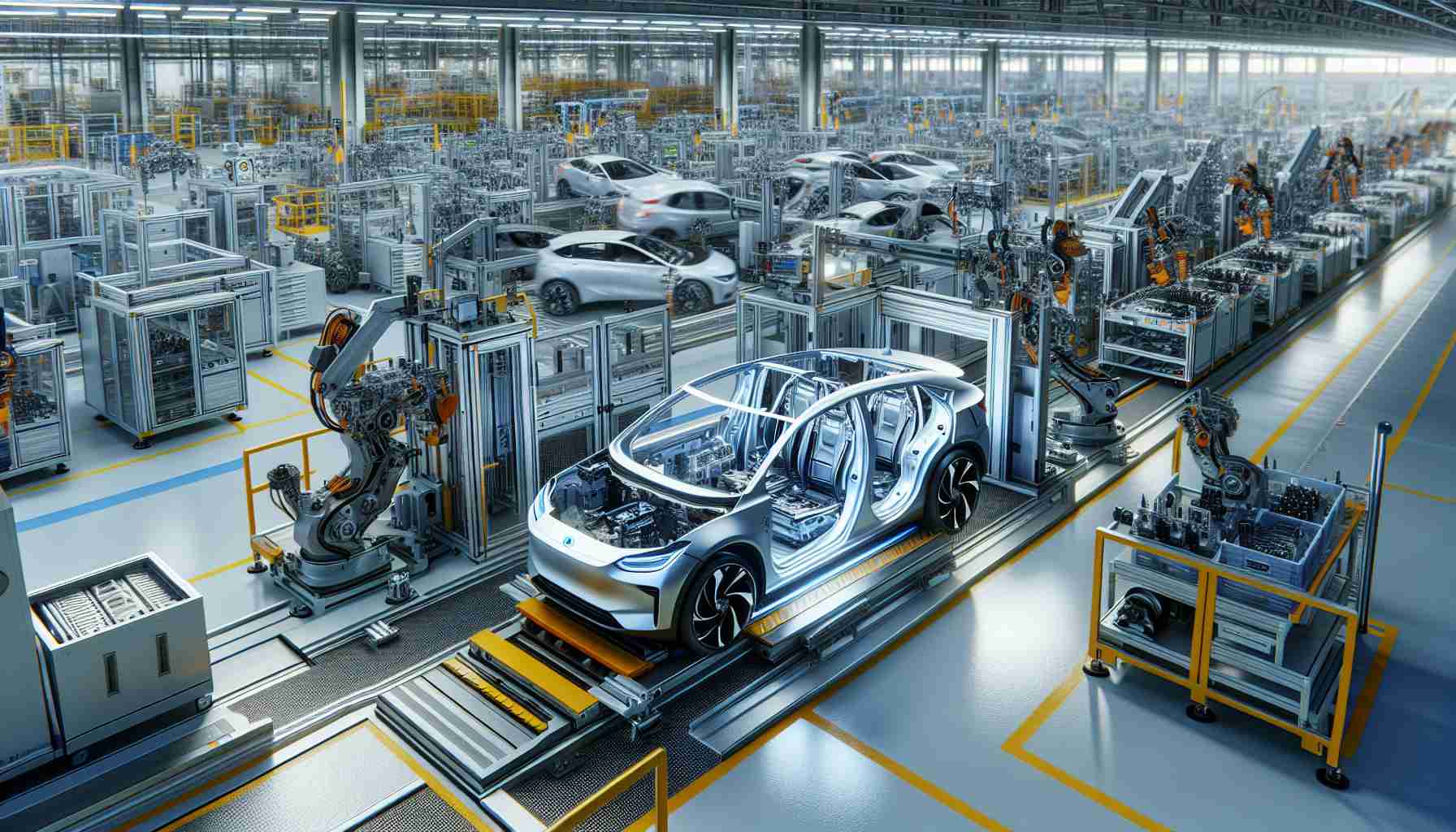Xiaomi EV, the electric vehicle division of the acclaimed Chinese tech company Xiaomi, is poised to significantly boost its manufacturing output by transitioning to a double-shift production schedule starting June. This move is anticipated to enhance daily operations from the current 8-hour single shift to a full 16-hour production day.
The Beijing-based Xiaomi EV factory is aligning its resources to address the escalating demand for its vehicles. Lei Jun, the entrepreneurial force behind Xiaomi, has disclosed that their facility has reached impressive production efficiency levels, rolling out a new Xiaomi SU7 every 76 seconds, translating to 40 vehicles per hour.
Once the dual-shift production system commences, the plant’s output is projected to approach an impressive 20,000 vehicles per month. Leading to this strategic shift, Xiaomi EV has been on a recruitment drive, bulking up its production line workforce to handle the expanded operations. The company tapped into the recent Labor Day holiday for vital equipment maintenance and upgrades, teasing followers on Weibo with hints of optimistic updates on their achievements.
Moreover, Xiaomi EV is coordinating with its supply chain partners to secure an increased volume of essential components. The company has surged its part requisitions by approximately 80%, demonstrating a commitment to delivering on customer expectations. Additionally, groundwork for further expansion of the production capabilities is underway, with plans for a new factory phase which is set to commence construction in 2024.
Currently, those eager to acquire the Xiaomi SU7 are facing an extensive wait, spanning up to 30 weeks, indicating a robust market interest. Xiaomi EV stays focused on meeting a bold annual goal of 100,000 deliveries, having recently celebrated the milestone delivery of their 10,000th vehicle. Customers have a variety of SU7 models to choose from, with price points to match the diversity in offerings. As Xiaomi continues to fortify its position in the EV market, it suggests its intent to rival benchmarks set by industry giants like Tesla.
Market Context and Industry Challenges
The electric vehicle industry is rapidly expanding as environmental concerns and government policies favoring sustainable transportation drive consumer demand upward. Xiaomi, entering the EV market, positions itself against established automotive giants as well as new entrants with a background in technology like Tesla.
One critical question in this context is: How will Xiaomi differentiate its electric vehicles in a crowded market? Xiaomi is likely to leverage its existing brand reputation for high-quality consumer electronics at competitive prices. They could potentially offer advanced technology features in their EVs, backed by their electronics expertise, to gain an edge.
Key Challenges and Controversies Surrounding EV Production
The major challenges Xiaomi might face include supply chain management, ensuring battery safety and efficiency, and maintaining cost competitiveness amid fluctuating raw material prices. Securing a steady supply of batteries, semiconductors, and other key components can be particularly tricky in the current global market, which has faced disruptions due to the COVID-19 pandemic, geopolitical tensions, and trade conflicts.
There are also controversies regarding the sourcing of raw materials like cobalt and lithium for batteries, which have been associated with environmental degradation and unethical labor practices. Xiaomi will have to navigate these concerns carefully to maintain its brand image.
Advantages and Disadvantages of Xiaomi’s Entry into the EV Market
The key advantages include Xiaomi’s robust manufacturing capabilities, its established brand and vast consumer electronics customer base, and its ability to integrate advanced technology into its vehicles. Additionally, the company’s aggressive push into EV production signals a strong commitment to capitalizing on the market’s growth and meeting consumer demand.
However, there are also disadvantages such as the need for significant investment in R&D to keep up with technology and safety standards, the challenge of building customer trust in a field outside of their traditional offerings, and the intense competition from both long-standing automotive manufacturers and other tech companies entering the EV space.
Xiaomi’s move into the EV market can potentially disrupt the current competitive landscape, especially if they are able to bring innovation and value that resonates with consumers.
For those interested in exploring more about the electric vehicle industry or the broader context within which Xiaomi operates, here are a couple of reliable, related links:
– Xiaomi: For insights into the company’s profile and its other product offerings.
– Tesla: To understand more about the market leader in EVs and their business strategies, which Xiaomi may either emulate or compete against.
In this ever-evolving industry landscape, Xiaomi EV’s push to ramp up production could substantially alter the economics and dynamics of the EV market, contributing potentially to more accessible prices and technological advancements in the long term.
The source of the article is from the blog mendozaextremo.com.ar
